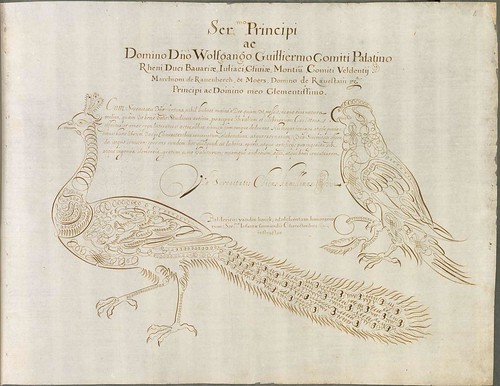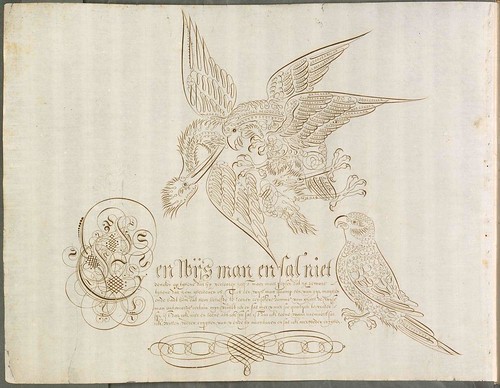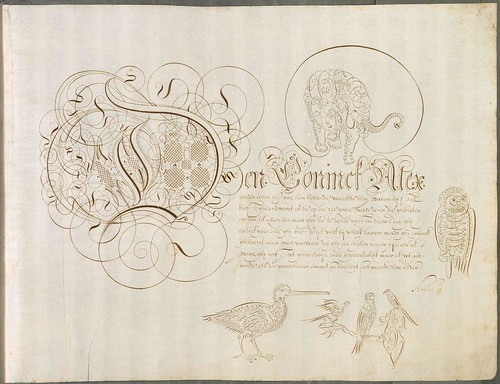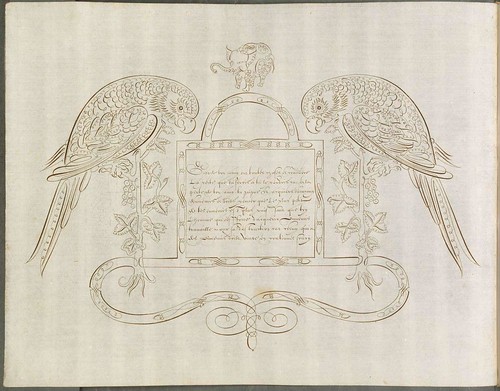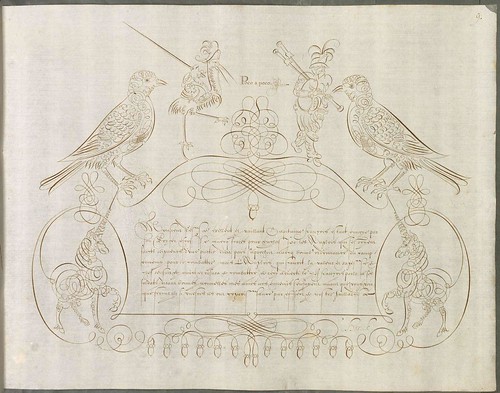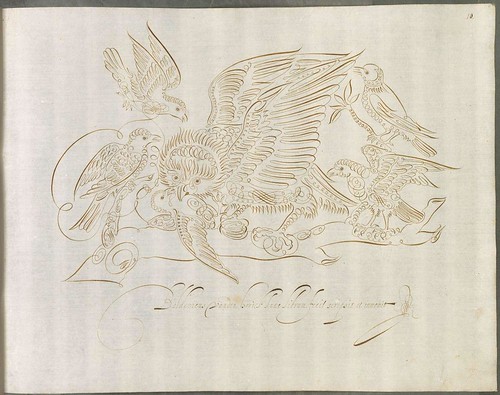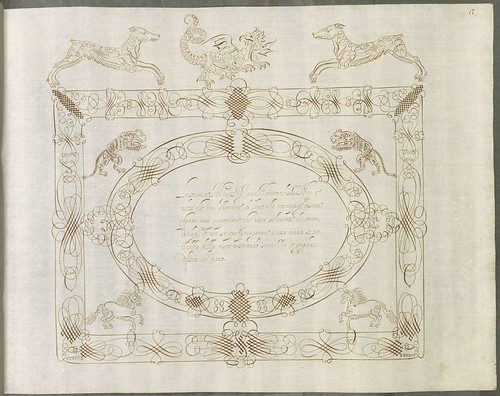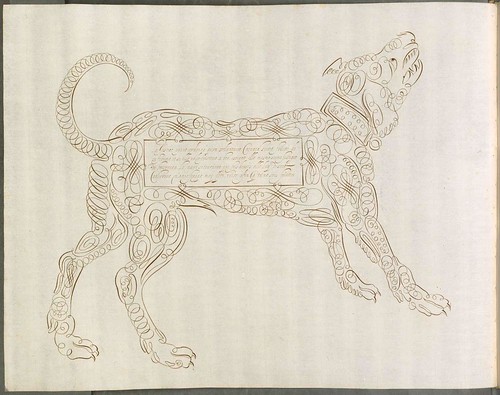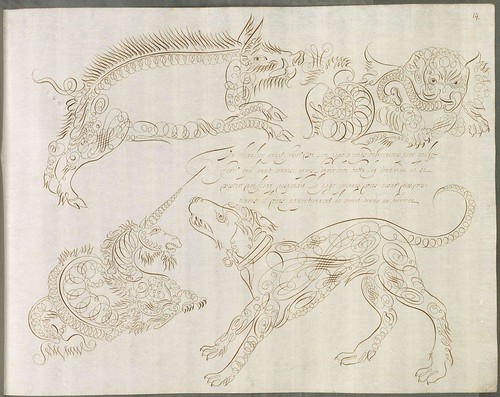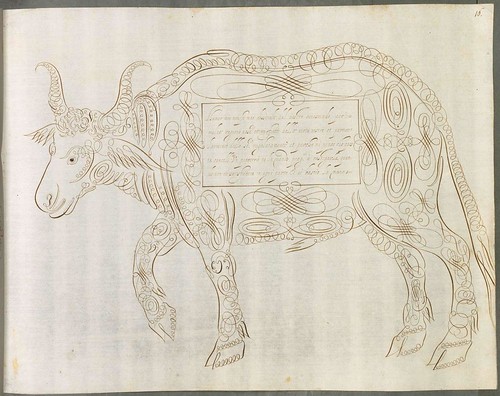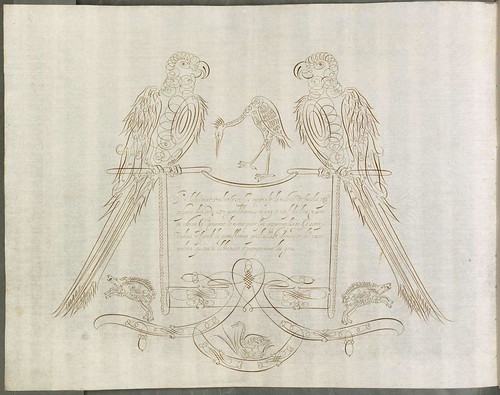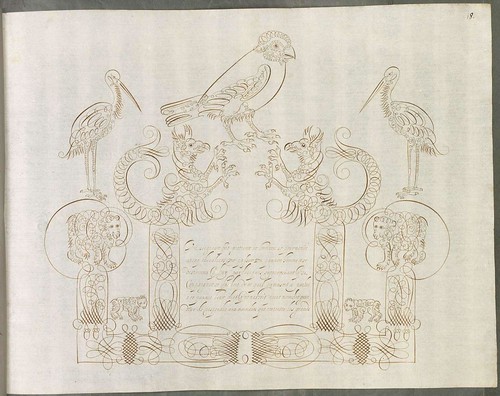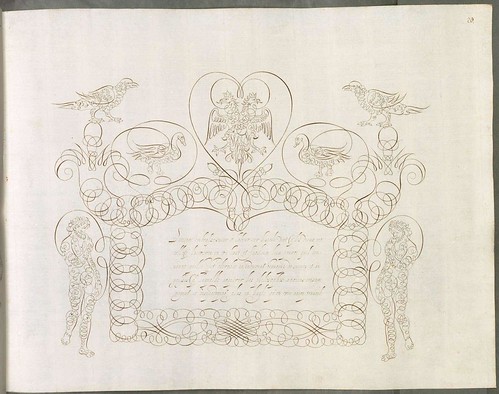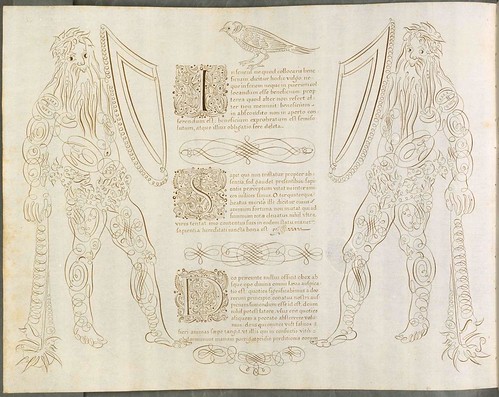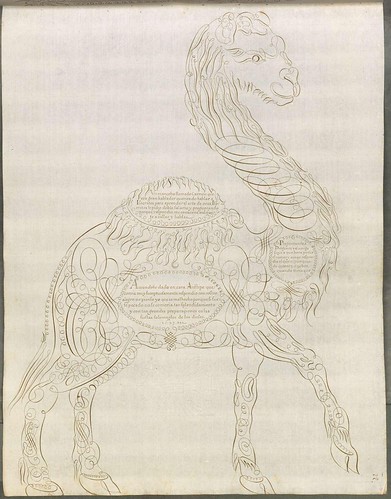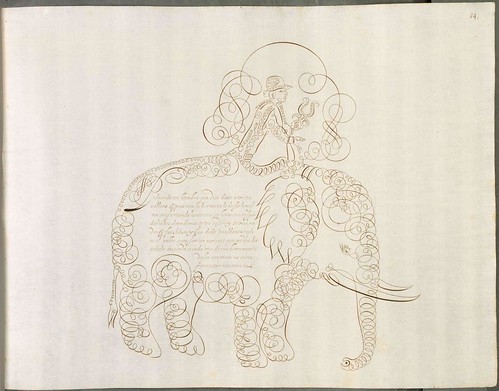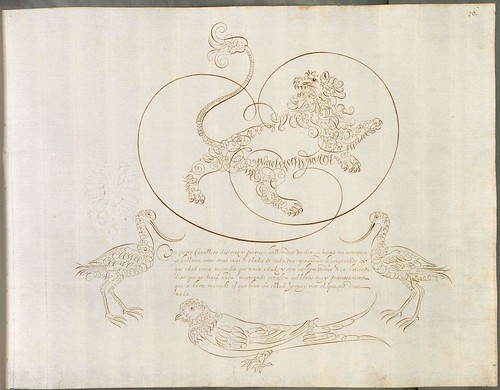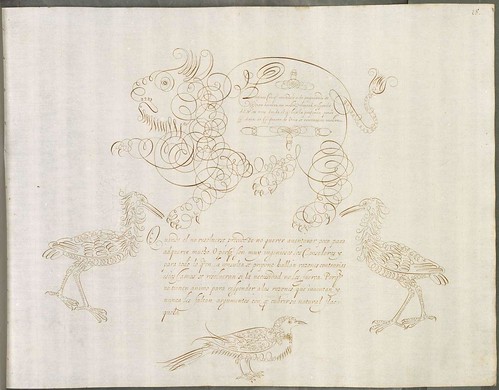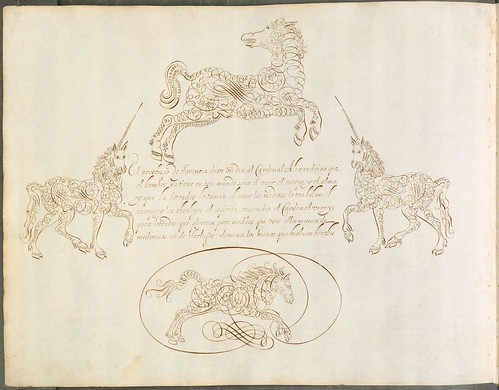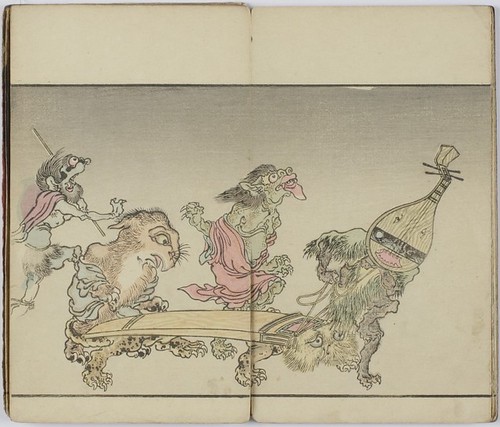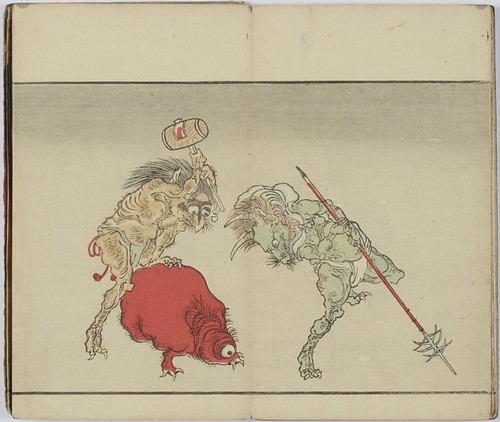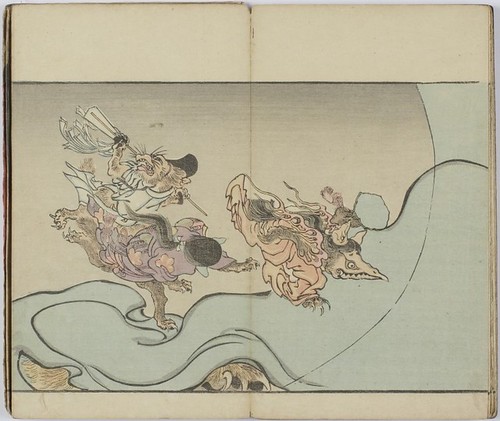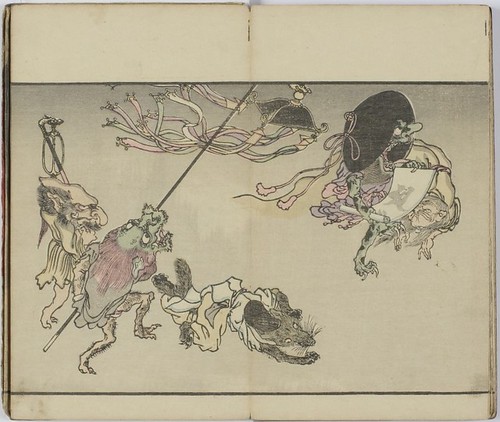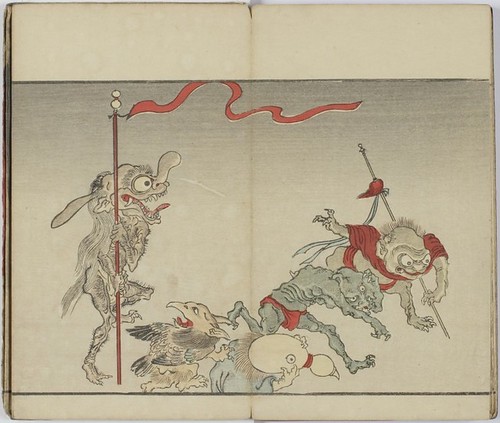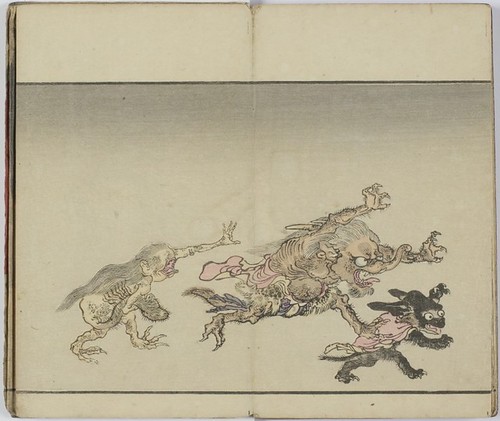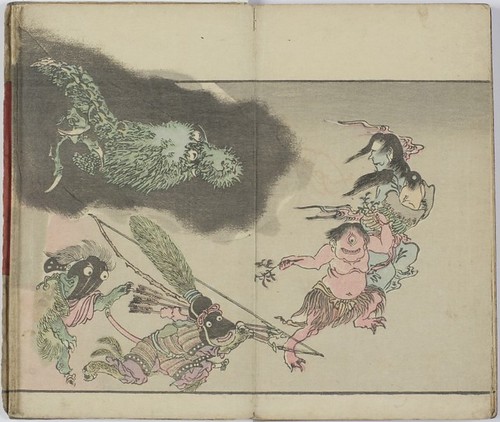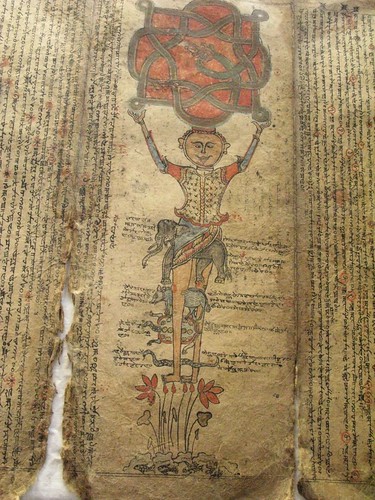
Manipuri Manuscript
University of Kentucky librarian,
Mary Molinaro, is a contributor to the
Digitize Manipur project. She tells me that the above manuscript is about 1000 years old and
may be a representation of a cosmological system. The photo was taken at the People's Museum in Kakching in the sensitive eastern border state of Manipur
* in India.
The research project aims to preserve and digitise the threatened private archive of manuscripts and make high resolution files available in a digital library. The task of finding people who are able to read and transcribe the ancient script is made all the more difficult by travel difficulties and regional conflict.
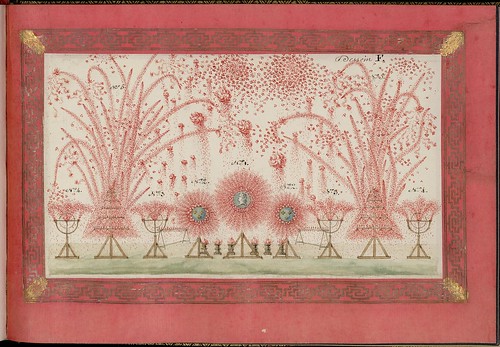
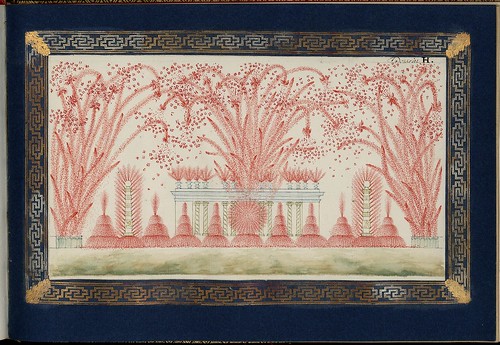 'Projet du feu d'artifice tiré à Versailles en présence de sa majesté Louis XV, le 15 mai 1771, à l'occasion du mariage de Monseigneur le comte de Provence et de Marie-Joséphine de Savoie'
'Projet du feu d'artifice tiré à Versailles en présence de sa majesté Louis XV, le 15 mai 1771, à l'occasion du mariage de Monseigneur le comte de Provence et de Marie-Joséphine de Savoie' (or: fireworks display at the Palace of Versailles)
Centre de recherche du château de Versailles has an image database featuring photographs, drawings, plans and prints from a number of institutions.
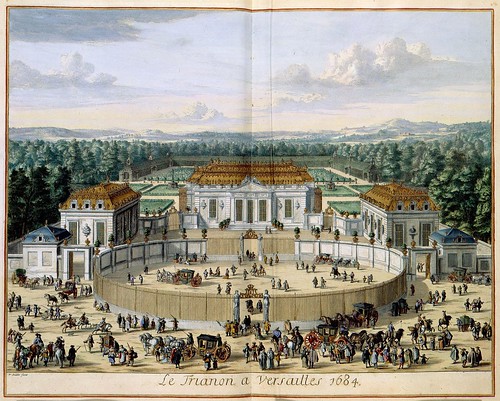
'Le Trianon à Versailles' 1684 by William Swidden
"De Atlas van der Hagen and Atlas Beudeker is a joint project of the Koninklijke Bibliotheek and the British Library. This project led to the digitising of the Atlas Van der Hagen (ca. 1690) and the Atlas Beudeker (ca. 1750). The Atlas Van der Hagen shows topographical images from the whole world, whereas the Atlas Beudeker focuses solely on the northern and southern Netherlands."
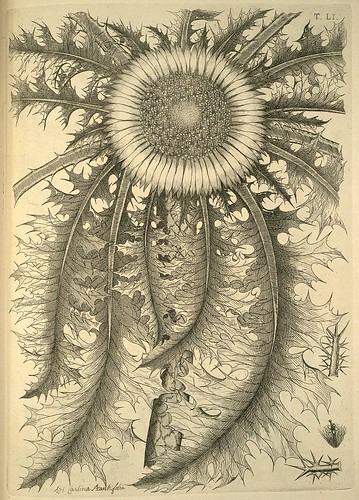
[Handwritten name: -
Carlina Acantiflora-] from
'Flora Pedemontana', 1785 by Carlo Allioni at the
University of Strasbourg Digital Library. The book records the flora of the
Piedmont region of Italy. [click the folder icon top left once the book is loaded and go to page 78 for the numerous engravings]
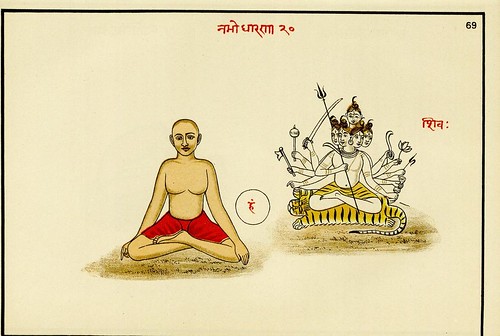
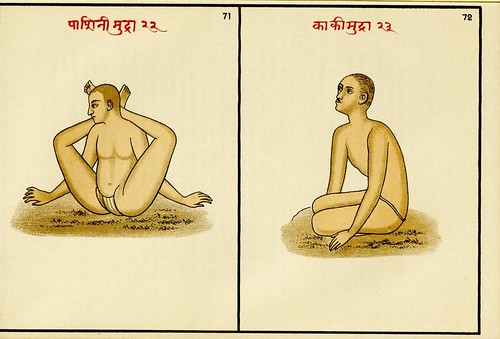
These two images are from
'Fakire und Fakirtum im alten und modernen Indien: Yoga-Lehre und Yoga-Praxis nach den indischen Originalquellen', 1908 by Richard Schmidt hosted by
the University of Heidelberg.

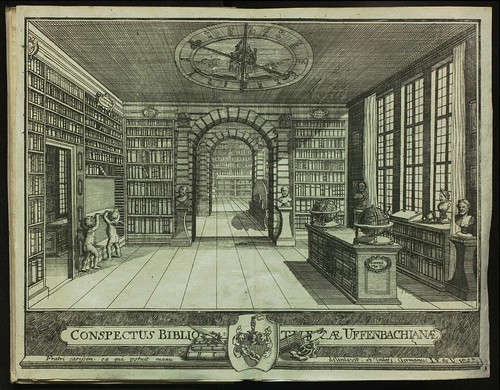 'Bibliothecæ Uffenbachiana Universalis', 1729 at the Universitäts- und Landesbibliothek Sachsen-Anhalt
'Bibliothecæ Uffenbachiana Universalis', 1729 at the Universitäts- und Landesbibliothek Sachsen-Anhalt (click
'Übersicht' for thumbnail pages)
[image spliced together from two digital files]"The library of [Conrad Zaccharias von] Uffenbach, at one time mayor of Frankfurt, was one of the largest of his time, counting, according to Buzas, 40,000 titles bound in 12,000 volumes, among them 413 incunabula. Towards the end of his life he decided to dispose of it, but frustrated by the unpredictable results of book auctions, decided to take matters into his own hands, himself compiling its catalogue, and affixing to each item the price he wished to obtain for it."
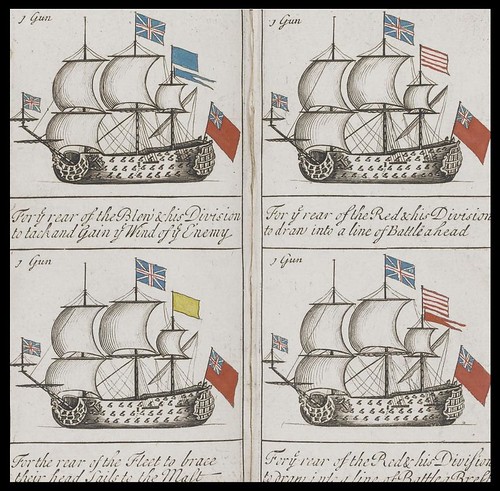
'The Sailing and Fighting Instructions or Signals as they are observed in the Royal Navy of Great Britain' by Jonathan Greenwood, 1715.
[more images among the
George Henry Preble Collection in the Navy Department Library at the Naval Historical Center in Washington (
not the source of this image)].
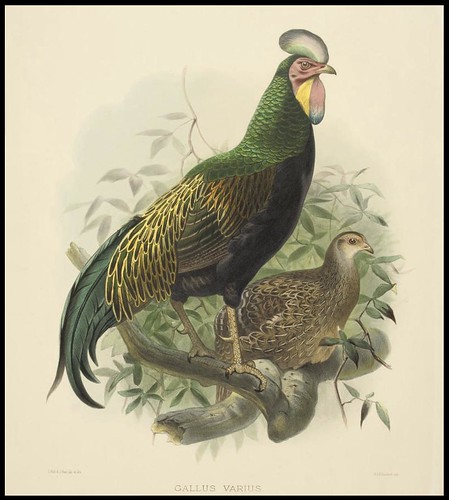
Green Jungle Fowl (
Gallus varius); and Fireback Pheasant (
Euplocamus pyronotus) - handcoloured lithographs from
'A Monograph of the Phasianidae or Family of Pheasants', published in New York in 1870-1872.
The above two images - spliced together from screencaps - are listed in the
Christie's Travel, Science & Natural History catalogue relating to an auction to be held in London on 8 April 2009.
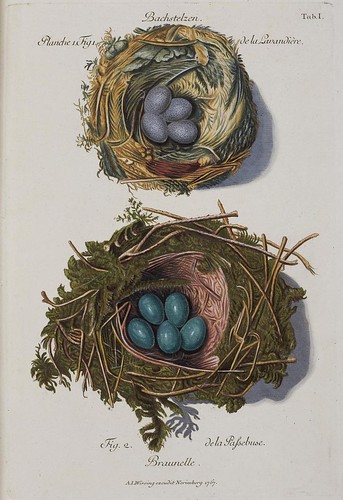
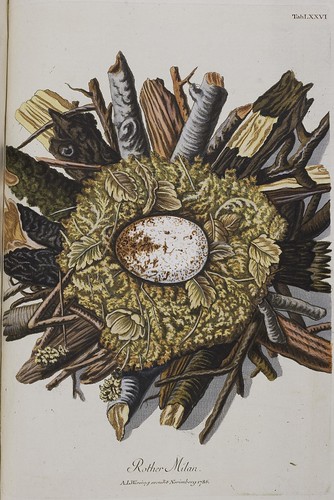
The above two images are from:
'Sammlung von Nestern und Eyern verschiedener Vögel..' by FC Günther and AL Wirsing, published between 1772 and 1786; hosted by
the University of Heidelberg. (click anything below
'Inhalt' and then
'Vorschau' for thumbnail pages. LOTS of nest/egg illustrations.)
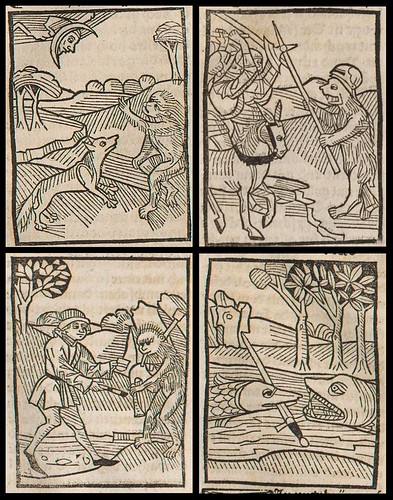
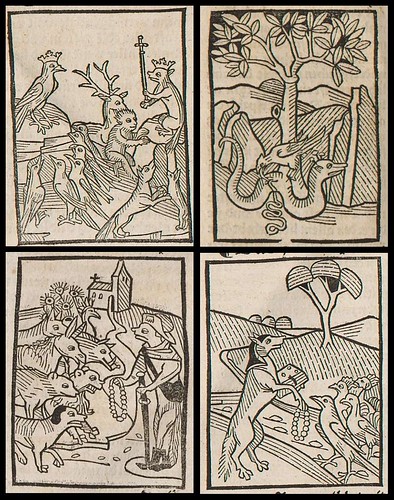
Woodcut details taken from an incunabulum of fables by Bonjohannes de Messina and published in Augsburg in 1490 by Ulrich von Pottenstein:
'Das buch der Natürlichen weißheit' at BSB in Munich.
I believe this work relates to the
'Parabelen van Cyrillus' whereby dialogues between animals or between other creatures serve to explain the moral, with the help of quotations from classical authors and the bible. [see
here, vaguely via
this]
{vaguely related:
'Le Monde Renversé' tradition:
Upending the World}

Lothar Meggendorfer is best remembered as the pop-up book pioneer (
previously) but his earlier satirical illustration work appeared in a couple of long running magazines.
The University of Heidelberg are in the throes of digitising 'Meggendorfer-Blätter', from the late-19th and early 20th centuries.
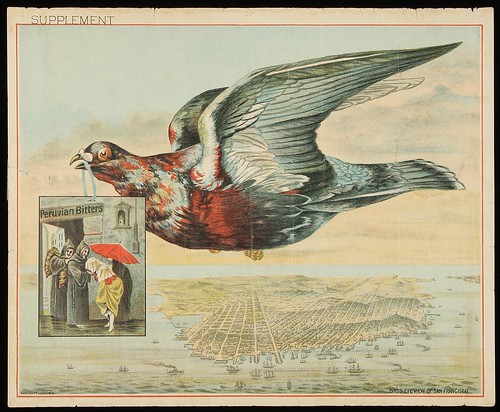
Peruvian Bitters advertisement - Bird's Eye View of San Francisco, 1880s.
"The aerial view, a true birds eye looking at San Francisco toward the West from a flying pigeon above, carrying a Peruvian Bitters advertising piece in it's beak, issued as a color supplement from the SF Newletter" (Peruvian Bitters was a San Francisco patent medicine company)
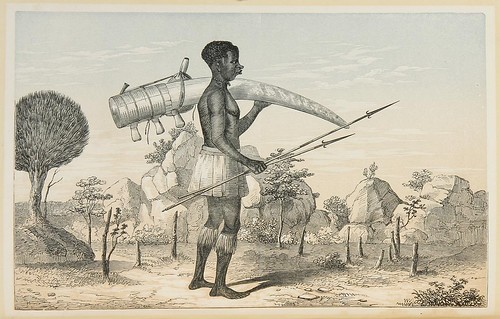
IN:
'The Lake Regions of Central Africa - A Picture of Exploration' by Richard Burton, 1860.
"Burton's account of his penetration into the interior of Africa, with John Hanning Speke as his second in command, in search of the source of the Nile River. The journey was to become as famous for the acrimonious relationship between the two explorers as for any geographical knowledge gained, although the latter was significant."
The above two images come from the
PBA Galleries catalogue for a rare book auction that occurred in the last day or so.
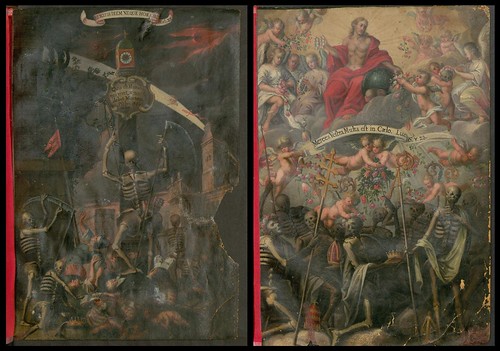
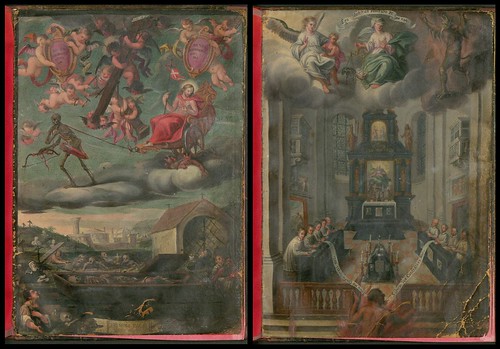
These images are from an unusual
(however redundant an adjective that may be on this site) work called
'Necrologium Canonicorum Regularium' from 1682, hosted by MDZ. I thought it was going to be a written work about religious laws on death (and it may be that too) but beyond a couple of typeset pages, there are numerous supernatural/religious scenes painted directly onto the fifty-odd parchment pages. Some of the painting - or maybe a varnish over them - has deteriorated with time making the scenes a little bit hazy.
